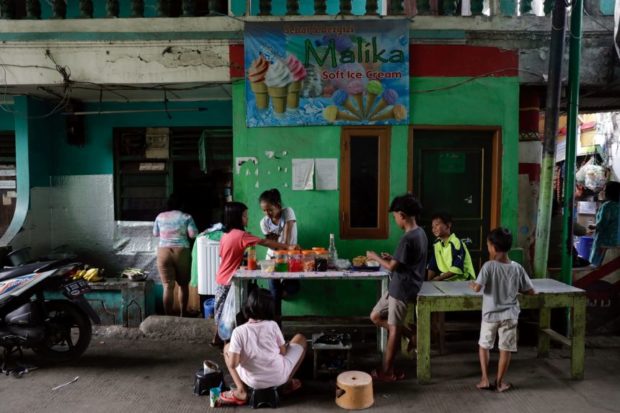
The number of orphaned children in Indonesia is rising fast as the country continues to record among the highest daily fatality figures from Covid-19 in the world. REUTERS FILE PHOTO
JAKARTA — Eight-year-old Alviano Dava Raharjo knew that his parents had been admitted to hospital in West Kutai, East Kalimantan, but he was puzzled why they had not come home yet.
“‘Why has Mum not returned home, Grandpa?’ Vino asked me,” his maternal grandfather Yatin, who goes by one name, told The Straits Times, using the boy’s nickname as he recalled their phone conversation in mid-July.
Unknown to Alviano then, his 32-year old mother Lina Safitri, who was five months pregnant, had just died of Covid-19. His father, meatball vendor Kino Raharjo, 32, died the next day and was buried near his wife.
The number of orphaned children in Indonesia like Alviano is rising fast as the country continues to record among the highest daily fatality figures from Covid-19 in the world.
The death toll was 1,588 on Saturday (Aug 7), bringing total fatalities to 105,598 since the pandemic began. Over 3.6 million people have been infected so far.
Social Affairs Minister Tri Rismaharini said on Thursday that at least 11,045 children nationwide had lost one or both parents to the coronavirus as at July 20.
Mr Tata Sudrajat, deputy chief of program impact and policy at Save the Children Indonesia, estimated that, based on official fatality data as at Tuesday, at least 15,229 children have been orphaned from the coronavirus, but noted the figure could be higher.
Some of these children can rely on relatives or extended family to take care of them. Others are less fortunate and are left without any means to clothe, feed or educate themselves.
While there are state-offered solutions such as adoption, foster care and orphanages, experts say family-based care, for example by the child’s grandparents, remains the best option.
“(Sending kids to orphanages) should be the last resort, as in our alternative care framework, we must try to engage the closest families first,” Mr Tata told ST.
He noted that these children suffered emotional and psychological effects from their parents’ death, including feelings of loss and grief, and this is made worse when they are separated from or abandoned by family members.
Mr Nahar, a senior official in charge of child protection at the Women’s Empowerment and Child Protection Ministry, shared Mr Tata’s view.
“In Indonesia, family ties are quite strong. We believe children can be nurtured by their large extended families,” he said.
Eight-year-old Alviano Dava Raharjo with his bicycle at his old home in West Kutai, East Kalimantan. Credit: Yatin via The Straits Times/Asia News Network